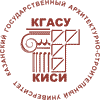Анкета автора(ов)
| Фамилия, имя, отчество, учёная степень, звание, должность. Полное и сокращённое наименование организации, адрес организации. | Желнакова Л.В. – аспирант Email: Этот e-mail адрес защищен от спам-ботов, для его просмотра у Вас должен быть включен Javascript Родионовская И.С. – кандидат архитектуры, профессор Email: Этот e-mail адрес защищен от спам-ботов, для его просмотра у Вас должен быть включен Javascript Московский государственный строительный университет Адрес организации: 129337, Россия, г. Москва, ул. Ярославское шоссе, д. 26 |
| Название статьи. | Эко-доминантная составляющая проектирования дошкольных учреждений инклюзивной направленности в условиях урбосреды |
| Аннотация. | Инклюзивное образование предполагает обучение здоровых детей и детей с ограниченными возможностями здоровья (ОВЗ). Проектирование детских дошкольных учреждений (ДОУ), реализующих инклюзивные образовательные программы требует учета ряда специфических аспектов, с целью создания полноценного и комфортного архитектурно – ландшафтного пространства для данной категории населения. В условиях урбанистической среды мегаполиса одним из таких фундаментальных аспектов становится экологическая защита образовательного учреждения на внешнем (участок) и внутреннем (здание) уровнях. Статья посвящена рассмотрению возможностей создания такой защиты путем включения в функциональную схему ДОУ растительного компонента как элемента развивающей среды. |
| Ключевые слова. | инклюзивное образование, фито-компонент, дошкольное учреждение, экологическая защита, игровое пространство. |
| First name, Middle name, Last name, Scientific degree, Scientific rank, Current position. Full and brief name of the organization, The organization address. | Zhelnakova L.V. – post-graduate student E-mail: Этот e-mail адрес защищен от спам-ботов, для его просмотра у Вас должен быть включен Javascript Rodionovskaya I.S. – candidate of architecture, professor Email: Этот e-mail адрес защищен от спам-ботов, для его просмотра у Вас должен быть включен Javascript Moscow State University of Civil Engineering The organization address: 129337, Russia, Moscow, Yaroslavskoe sh., 26 |
| Title of the article | An ecological factor of designing the inclusive preschool institutions in the urban environment |
| Abstract. | According to the adopted by the Russian Government program of inclusive education, children with limited mobility may attend a kindergarten in conjunction with healthy children. This category includes children with impaired hearing, vision, speech, intelligence, musculoskeletal system, disorders of emotional and volitional and with learning difficulties. Such children can successfully live an active busy life, can adapt to the environment, learn and develop. From an architectural perspective, this means that all new buildings of kindergartens to be built in Moscow should comply with the principles of universal design. All buildings must be accessible to persons with disabilities, should be inclusive. But, what is true inclusion, is it possible to comply with its requirements if the building will be constructed in megapolis? This article is dedicated to ensuring ecologically protected environment of children's institutions in a megapolis. The main environmental factors of a megacity are: air pollution, lack of sufficient landscaping, noise. The situation is complicated by the fact that due to dense development, increasingly difficult to find sites for the location of kindergartens, which would be sufficient in size and would have optimum relief and form. The article discusses how to resolve this problem by integrating planting into the functional structure of the building of the kindergarten. The author examines the different types of such integration: the creation of winter gardens, «green playrooms», «aquariums – gardens » and its architectural features and also the possibility of plastic to create a green play areas into the building. Positive effect of plants on physical and mental health of the child proved scientifically. A properly designed «Green playroom» is able to lighten the mood, stimulate the child to physical activity to relieve stress. Its importance for the inquisitive little man is hard to overestimate. Not only biological, but also «social» connection arise between the child and plants in urban settings. Plants variety of activities child and «heals» indoor climate. Thus, the vegetation that is properly integrated into the kindergarten building will help solve two problems at once: 1. creating of the environmental protection from the destructive factors of the city. This applies to all children, including children with disabilities 2. harmonization of habitat that is alive and constantly changing, as is typical for the child's psyche. |
| Keywords. | inclusive education, phyto-components, preschool, environmental protection, play area. |
| Для цитирования: | Желнакова Л.В., Родионовская И.С. Эко-доминантная составляющая проектирования дошкольных учреждений инклюзивной направленности в условиях урбосреды // Известия КГАСУ. 2015. №4(34) С.105-112. |
| For citations: | Zhelnakova L.V., Rodionovskaya I.S. An ecological factor of designing the inclusive preschool institutions in the urban environment // Izvestiya KGASU. 2015. №4(34) P.105-112. |















